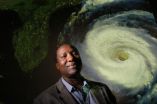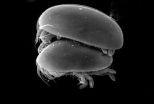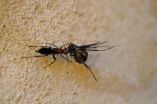(Press-News.org) This press release is available in German.
In the wake of the terrorist attacks of September 11, 2001, many Americans started driving more due to a fear of flying – and lost their lives in traffic accidents. But why did this happen more frequently in some states than in others? And why didn't Spanish driving habits change in the same way following the 2004 train bombings in Madrid? Wolfgang Gaissmaier and Gerd Gigerenzer from the Harding Center for Risk Literacy at the Max Planck Institute for Human Development in Berlin present new findings on this topic in the journal Psychological Science.
As we all know, the terrorist attacks of September 11, 2001 changed the world: The feeling of vulnerability led to the so-called "war on terror." New laws were passed and surveillance intensified to reduce the risk of direct damage resulting from terrorism. But terrorist attacks also cause indirect damage. This comes about through people's thoughts and fears in reaction to such attacks. In the case of 9/11, it was primarily severe losses in the aviation and tourism industries. Earlier studies showed that, following the terrorist attacks, more people chose to drive rather than fly, feeling it was safer. The result was not just a greater risk of traffic congestion: in the twelve months following September 11, 2001, there were an estimated 1,600 more accident-related deaths on American roads than would have been expected statistically.
But why would such an increase in traffic and, with it, also in traffic deaths, be observed only in some states and not in others? And why was no increase in driving and in traffic accidents seen following the likewise devastating train bombings in Madrid in 2004? Psychologists Gaissmaier and Gigerenzer from the Max Planck Institute for Human Development and the Harding Center for Risk Literacy based there present new analyses, which will soon be published in the journal Psychological Science.
In the analyses, they show that car traffic increased particularly in the New York vicinity. The main attacks were focused on the World Trade Center located there. These images, and thus also the fear, were presumably particularly present for people who lived in the surrounding area; other studies also support this assumption. However, the authors further identify a second, even stronger factor that could explain why the traffic volume increased sharply even in some states far away from New York, especially in the Midwest: there, the infrastructure was simply very well suited to replace flying with driving. The streets were very well developed in relation to the number of inhabitants, and many cars were registered.
"Our study findings support the assumption that the fear created by terrorist attacks can cause potentially risky behaviour. But they also make it clear that fear alone is not enough to understand where indirect damage can occur in the wake fatal events like those of 9/11," says Wolfgang Gaissmaier. "To predict where the indirect damage of terrorist attacks can have particularly fatal consequences, and to possibly curb a secondary, psychological attack, we must pay very close attention to the general conditions that first make it possible for risky, fear-induced behaviours to express themselves – such as the respective infrastructure."
That could also explain why there were fewer Spanish train travellers following the train bombings in Madrid on March 11, 2004, but without any corresponding increase in car travel. Spain simply has a less pronounced car-driving culture, and Gaissmaier and Gigerenzer also express this in numbers: in 2001 in the US, there were around 800 cars registered per 1,000 inhabitants, while in 2004 in Spain, this figure was just around 600.
###Original publication:
Gaissmaier, W. & Gigerenzer, G. (in press). 9/11, Act II: A Fine-grained Analysis of Regional Variations in Traffic Fatalities in the Aftermath of the Terrorist Attacks. Psychological Science.
More traffic deaths in wake of 9/11
The fear of terrorist attacks can alter our everyday behaviour and result in more fatal traffic accidents
2012-09-11
ELSE PRESS RELEASES FROM THIS DATE:
Lights off? International experts call attention to dangers of exposure to light at night
2012-09-11
"The most important thing for us is to raise awareness of the dangers of artificial light at night and we have already come a long way now that the American Medical Association (AMA) recently announced its new policy recognizing adverse health effects of exposure to light at night and encouraging further research into the matter," said Prof. Abraham Haim, a leading authority on light pollution, who coordinated the 21st International Congress of Zoology (ICZ) that was held last week at the University of Haifa, Israel.
The panel of world experts discussed "Light Pollution ...
Researchers devise more accurate method for predicting hurricane activity
2012-09-11
Researchers from North Carolina State University have developed a new method for forecasting seasonal hurricane activity that is 15 percent more accurate than previous techniques.
"This approach should give policymakers more reliable information than current state-of-the-art methods," says Dr. Nagiza Samatova, an associate professor of computer science at NC State and co-author of a paper describing the work. "This will hopefully give them more confidence in planning for the hurricane season."
Conventional models used to predict seasonal hurricane activity rely on classical ...
A minute crustacean invades the red swamp crayfish
2012-09-11
The small ostracod Ankylocythere sinuosa measures no more than half a millimetre in length and lives on other crayfish. And, Spanish scientists have discovered it for the first time in Europe. The finding suggests that it arrived along with the invader crayfish Procambarus clarkii some 30 years ago but it is still unknown whether it can invade other crustacean species or whether it benefits or damages the expansion of the already established red swamp crayfish.
The red swamp crayfish (Procambarus clarkii) originates from the USA and Mexico and has been present in the Iberian ...
Dartmouth research imparts momentum to mobile health
2012-09-11
Electronic Jewelry for Health
Bracelets and amulets are in the works at Dartmouth's Institute for Security, Technology, and Society (ISTS). Rather than items of mere adornment, the scientists and engineers are constructing personal mobile health (mHealth) devices—highly functional jewelry, as it were.
mHealth is a rapidly growing field where technology helps you or your physician monitor your health through mobile devices. This approach can offer more accurate and timely diagnoses as well as lower health costs. However, smartphones are often used to transmit collected ...
Aussie wasp on the hunt for redback spiders
2012-09-11
University of Adelaide researchers say a small wasp that scientists had forgotten about for more than 200 years is now making a name for itself – as a predator of Australia's most common dangerous spider, the redback.
The wasp (Agenioideus nigricornis) was first described scientifically in 1775 by Danish entomologist Johan Christian Fabricius, thanks to samples collected in Australia during Captain Cook's first great voyage (1768).
"Since then, scientists have largely forgotten about the wasp," says Professor Andy Austin from the University of Adelaide's Australian ...
Diet could combat adverse side-effects of quinine
2012-09-11
Scientists at The University of Nottingham say adverse side-effects caused by the anti-parasitic drug quinine in the treatment of malaria could be controlled by what we eat.
The research, carried out by Nottingham scientists on the University's campuses in the UK and Malaysia, indicates that natural variation in our levels of the amino acid, tryptophan, has a marked bearing on how we respond to quinine treatment. It appears that the lower our levels of tryptophan the more likely it is that we would suffer side-effects. And because tryptophan is an essential amino acid ...
A study analyzes the search for information in stock photography agencies
2012-09-11
VIDEO:
Research carried out at Universidad Carlos III in Madrid analyzes the search and visualization systems used by commercial stock photography agencies, whose estimated annual net sales reach over 150 billion...
Click here for more information.
Stock photography agencies, and not just those companies that dominate the digital photography market, are at the forefront of information search tools. "Their search, visualization and information downloading systems are extraordinarily ...
Vitamin C and beta-carotene might protect against dementia
2012-09-11
Forgetfulness, lack of orientation, cognitive decline… about 700, 000 Germans suffer from Alzheimer's disease (AD). Now researchers from the University of Ulm, among them the Epidemiologist Professor Gabriele Nagel and the Neurologist Professor Christine von Arnim, have discovered that the serum-concentration of the antioxidants vitamin C and beta-carotene are significantly lower in patients with mild dementia than in control persons. It might thus be possible to influence the pathogenesis of AD by a person's diet or dietary antioxidants. 74 AD-patients and 158 healthy ...
Risk-glorifying video games may lead teens to drive recklessly, new research shows
2012-09-11
WASHINGTON -- Teens who play mature-rated, risk-glorifying video games may be more likely than those who don't to become reckless drivers who experience increases in automobile accidents, police stops and willingness to drink and drive, according to new research published by the American Psychological Association.
"Most parents would probably be disturbed to learn that we observed that this type of game play was more strongly associated with teen drivers being pulled over by the police than their parenting practices," said study lead author Jay G. Hull, PhD, of Dartmouth ...
Review: Altruism's influence on parental decision to vaccinate children is unclear
2012-09-11
INDIANAPOLIS -- As outbreaks of preventable diseases such as whooping cough and measles increase in the United States, researchers from the Regenstrief Institute and Indiana University School of Medicine are investigating whether altruism, known to influence adults' decisions to immunize themselves, influences parental decisions to vaccinate their children.
"If enough people are immunized against a particular disease, it prevents outbreaks of that disease and protects the community. This is known as herd immunity, and it's a very important benefit of childhood immunization," ...
LAST 30 PRESS RELEASES:
PhD student maps mysterious upper atmosphere of Uranus for the first time
Idaho National Laboratory to accelerate nuclear energy deployment with NVIDIA AI through the Genesis Mission
Blood test could help guide treatment decisions in germ cell tumors
New ‘scimitar-crested’ Spinosaurus species discovered in the central Sahara
“Cyborg” pancreatic organoids can monitor the maturation of islet cells
Technique to extract concepts from AI models can help steer and monitor model outputs
Study clarifies the cancer genome in domestic cats
Crested Spinosaurus fossil was aquatic, but lived 1,000 kilometers from the Tethys Sea
MULTI-evolve: Rapid evolution of complex multi-mutant proteins
A new method to steer AI output uncovers vulnerabilities and potential improvements
Why some objects in space look like snowmen
Flickering glacial climate may have shaped early human evolution
First AHA/ACC acute pulmonary embolism guideline: prompt diagnosis and treatment are key
Could “cyborg” transplants replace pancreatic tissue damaged by diabetes?
Hearing a molecule’s solo performance
Justice after trauma? Race, red tape keep sexual assault victims from compensation
Columbia researchers awarded ARPA-H funding to speed diagnosis of lymphatic disorders
James R. Downing, MD, to step down as president and CEO of St. Jude Children’s Research Hospital in late 2026
A remote-controlled CAR-T for safer immunotherapy
UT College of Veterinary Medicine dean elected Fellow of the American Academy of Microbiology
AERA selects 34 exemplary scholars as 2026 Fellows
Similar kinases play distinct roles in the brain
New research takes first step toward advance warnings of space weather
Scientists unlock a massive new ‘color palette’ for biomedical research by synthesizing non-natural amino acids
Brain cells drive endurance gains after exercise
Same-day hospital discharge is safe in selected patients after TAVI
Why do people living at high altitudes have better glucose control? The answer was in plain sight
Red blood cells soak up sugar at high altitude, protecting against diabetes
A new electrolyte points to stronger, safer batteries
Environment: Atmospheric pollution directly linked to rocket re-entry
[Press-News.org] More traffic deaths in wake of 9/11The fear of terrorist attacks can alter our everyday behaviour and result in more fatal traffic accidents





